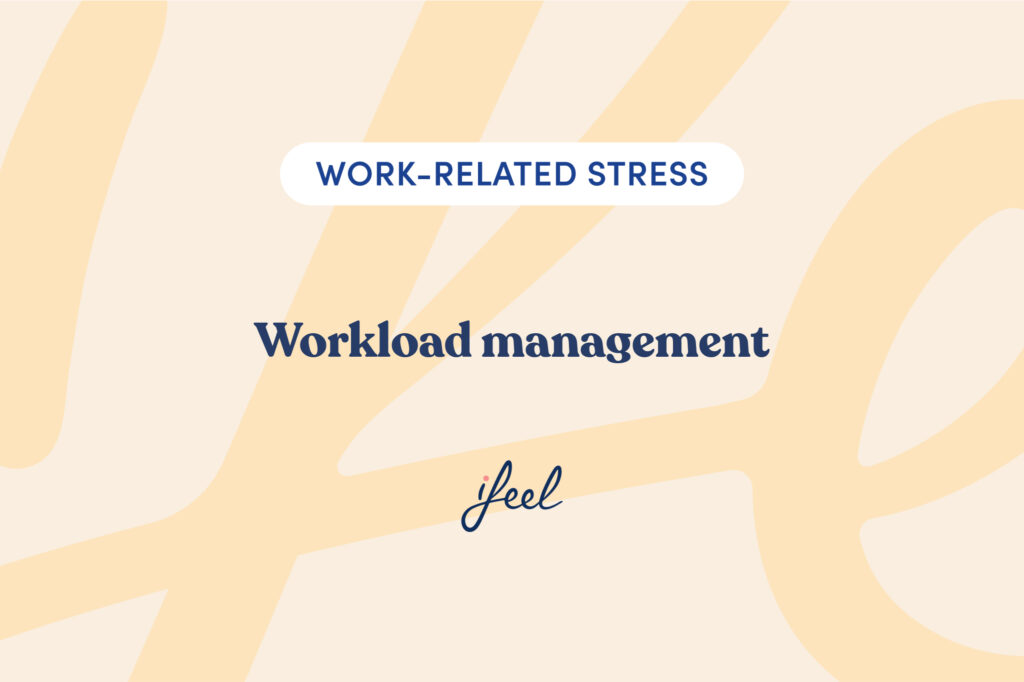As companies grow and expand, so do the responsibilities of each job. Against this backdrop, team managers face a major responsibility: to distribute workloads among employees to avoid burnout properly.
In today’s dynamic business world, efficient workload management is essential to ensure the productivity and well-being of employees. In fact, companies that adopt proactive approaches to help their teams manage their responsibilities efficiently not only improve individual performance but also foster a healthy work environment.

Workload management: why is it important?
According to Mental Health UK, “1 in 5 people need to take time off work due to poor mental health caused by pressure or stress”. In many cases, this happens because of a false belief that leads workers to go beyond their limits because they want to meet deadlines or because of the pursuit of perfection at work, which, far from being productive, leads to a deterioration of their mental health.
These data reveal that, regardless of the sector, the amount of responsibilities or pending tasks exceeds the workload management capacities of workers, and instead of increasing their productivity, it is proving counterproductive for companies.
In fact, taking care of proper workload management is the same as looking after employees’ well-being, fostering productivity, optimising talent and time to achieve the objectives set without suffering the negative effects of pressure.
For this reason, having workload management strategies in place is essential, not only for the well-being of employees but also because this practice brings with it several benefits:
| Benefit | Description |
|---|---|
| Improves productivity | Effective workload management allows employees to focus on important and prioritised tasks, increasing overall productivity. |
| Reduces stress and burnout | Proper workload management helps avoid overload, reducing excessive stress and minimising the risk of burnout, thus promoting better health. |
| Improved quality of work | Employees can deliver higher-quality results when they have sufficient time and energy to focus on their tasks with careful attention to detail. |
| Resources are optimised | Efficient workload distribution ensures optimal utilisation of skills and time, avoiding over- or under-utilisation of resources. |
| Helps to meet deadlines | Enables better task organisation and prioritisation, ensuring timely achievement of objectives and adherence to deadlines. |
| Encourages innovation | Frees up employees’ capacity, fostering creativity and an environment conducive to generating new ideas and solutions. |
| Improves talent retention | Effective workload management leads to better work-life balance, enhancing job satisfaction and encouraging employees to stay with the company. |
| Fosters a positive work environment | Supportive workload management creates a positive atmosphere where employees feel valued, improving morale and team cohesion. |
| Facilitates adaptability to change | Teams can remain agile and respond effectively to new challenges due to flexible and efficient workload management. |
| Improves overall business performance | Proper workload management enhances overall performance by ensuring efficient use of resources and maintaining employee engagement and productivity. |
5 tips for workload management
In order to maximise employee productivity while maximising benefits for the company, task assignments must be fairly aligned with the employee’s working time and professional skills.
In this sense, managers and team leaders are challenged to achieve the right balance in task lists and get team members to develop the skills to work smarter, optimise processes, and effectively manage workload for the benefit of the business. To do this, leaders must develop emotional intelligence strategies that allow them to see the big picture and assign tasks according to team members’ competencies and skills.
To facilitate this task and help managers manage the workload effectively, the following strategies can be applied:
1. Assess the workload:
Before implementing any workload management strategy, it is essential to conduct an analysis to understand the number and complexity of tasks and to adapt the workload to the employees and the current work rhythm.
In this respect, it is essential to have a psychologically safe environment, where employees can feel comfortable expressing their concerns and challenges in relation to the workload. Tools such as anonymous surveys, periodic reviews, or feedback sessions can also allow leaders to gather essential information.
2. Relying on technological tools:
Technology can be a powerful ally in managing workload. Implementing project management tools, collaboration software, or tracking systems can provide a clear view of tasks, deadlines, and available resources. In addition, automating routine processes can free up time for employees to focus on more prioritised, strategic and creative tasks.
3. Prioritise:
Helping employees to prioritise is essential. Companies can assist in creating to-do lists, identifying critical activities and those that can be delegated or postponed. This is because having a structured approach to time management and prioritisation contributes significantly to individual and collective efficiency.
4. Supporting skills development:
From the managerial level, offering psychoeducation on the job, as well as training in different areas, and supporting employees in skills development, can help employees learn useful strategies to manage workload. In this way, companies can provide resources for employees to improve their skills in specific areas, which not only increases efficiency in task execution, but also boosts workers’ confidence and commitment.
5. Conduct periodic workload assessments.
Established plans and strategies may change over time, based on the needs of the company. Therefore, regular evaluations as part of the work routine are vital to adjust the work methodology if necessary. In this way, you are also fostering a positive work culture, where employees can trust that they will not be left on their own throughout the execution of projects.
ifeel’s clinical insights: Risk assessment through SOFAS assessment
Discover how workplace mental health impacts productivity with insights from the “Risk Assessment through SOFAS Test” report! This study evaluates employees’ social and occupational functioning in therapy, revealing critical trends in mental well-being.
While most employees are functioning near optimal levels, the report highlights a critical 3.5% of high-risk individuals experiencing severe impairments in their work and personal lives. These findings emphasise the need for proactive mental health interventions to safeguard your workforce’s performance and well-being.Don’t miss out! Download the full report to uncover actionable strategies for boosting employee resilience and productivity.
Download our latest annual planner for enterprise organisations
Our team of mental well-being psychologists has created this annual planner, which offers a comprehensive guide to implementing strategies that foster health and productivity.
Optimise your team’s performance through this key resource. Designed to prepare you for the new year, our annual planner for enterprises is an essential tool for leaders who want to improve their team’s well-being. Download it for free now!

Unlock your team’s potential
At ifeel, we know that managing workload effectively is a shared responsibility between employees and employers. Ultimately, a well-managed workload leads to more engaged, productive, and satisfied teams.
To support companies in this process, our team of expert workplace well-being psychologists has created a mental well-being solution for enterprises that improves talent retention, reduces presenteeism, and combats employee stress.
With our mental well-being solution, your company’s HR managers can receive personalised, data-driven advice on improving mental health at work. In addition, this solution offers employees a 360° mental well-being service structured at different levels according to their needs. Try our solution now to see how it could help you.
We hope you found this article about workload management interesting. If you would like more information about our mental well-being solution for companies, simply request it, and we will contact your team as soon as possible.










